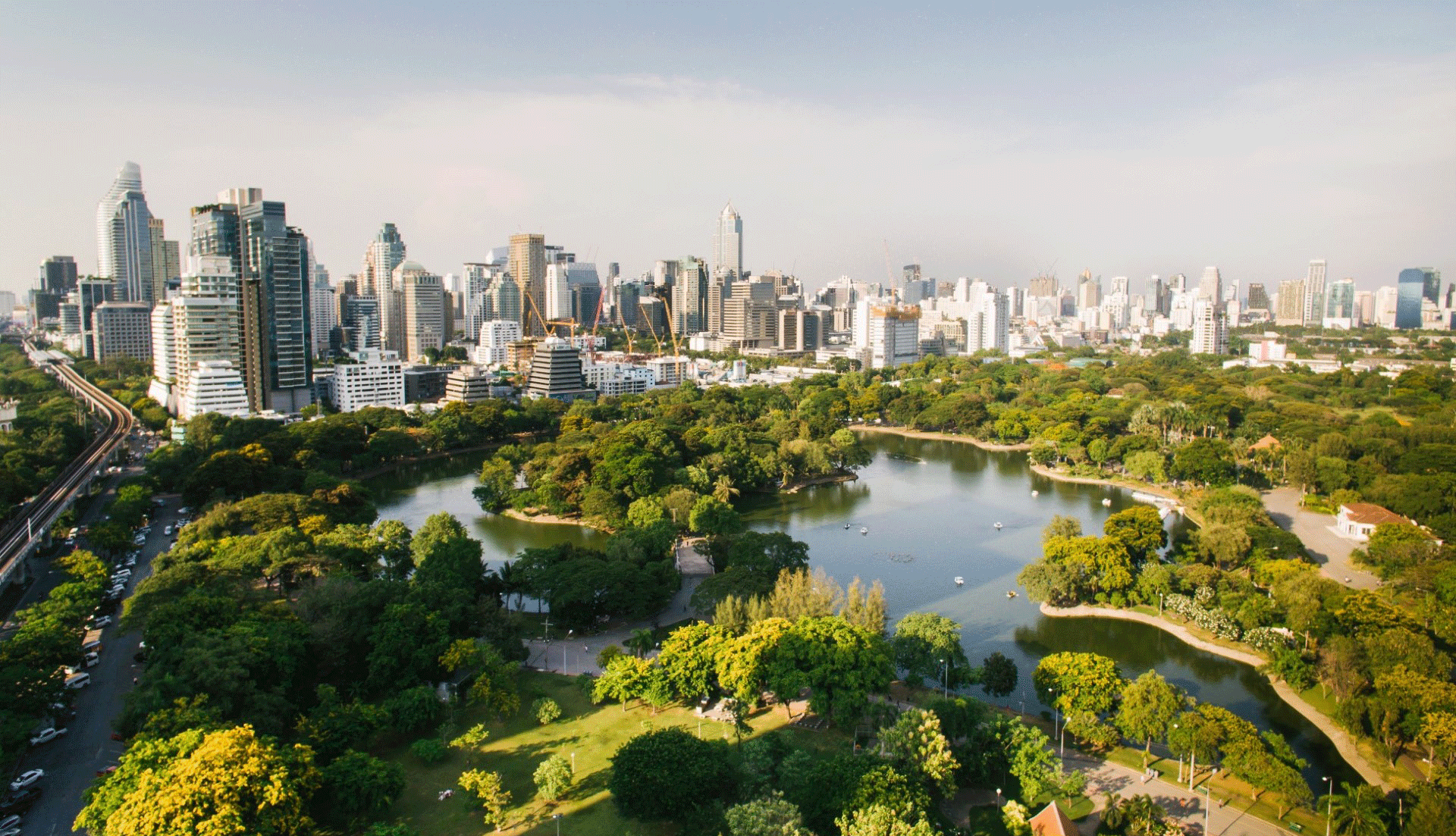CONTEXT
The Asia-Pacific region is experiencing rapid urbanisation and more than 3 billion people are expected to live in cities by 2050. Urban areas contribute to 75% of energy-related greenhouse gas emissions, and this share is expected to further increase. Asian cities also face growing climate change impacts, posing risks to the population, environment, and local economy.
While Urban-Act partner countries (China, India, Indonesia, Philippines, and Thailand) are committed to their Nationally Determined Contributions (NDCs) and national urban policies, there are still barriers in managing a successful transition to sustainable and climate-friendly urban development. Challenges include ineffective coordination, limited access to climate information, and insufficient capacities for identifying solutions, preparing climate actions, and accessing finance.
OBJECTIVE
The project aims to support the transformation towards low-carbon and resilient urban development as well as contribute to the implementation of national climate change targets and the Sustainable Development Goals.
APPROACHES
The project supports low-carbon and resilient urban development in the five partner countries in accordance to the context of the partner countries and aims to improve existing policy and regulatory frameworks to ensure sustainable outcomes through the following approaches:
- Technical assistance: Providing technical support to align policies, regulations, and services with climate change and sustainability goals in urban development.
- Knowledge transfer and capacity development: Focusing on enhancing the competencies of decision-makers and technical staff through knowledge transfer and training, enabling them to lead the transition towards a low-carbon and resilient urban future.
- Integration at the local level: Collaborating with government partners at the local level, offering support to up to 12 pilot cities in the Urban – Act partner countries to integrate climate change evidence into spatial and urban development plans and local budgeting.
- Targeted measures: Assisting partner cities in identifying high-impact measures for reducing greenhouse gas emissions and strengthening resilience, with a focus on urban mobility, urban blue/green space, green building, and circular economy.
- Leveraging finance: Supporting city administrations in leveraging additional finance for project preparation and implementation of urban climate actions.
- International partnerships, regional advocacy, and knowledge sharing: Engaging with UNESCAP and UCLG ASPAC at the Asia-Pacific level, and facilitating regional advocacy through intergovernmental and city-to-city dialogue. The project enables knowledge sharing, scaling-up of project results, and dissemination of good practices. The Technical University Dortmund and the University of Stuttgart, along with national implementation partners, are involved in each of the five partner countries.
RESULTS SO FAR
Urban-Act has focused on 4 outputs as follows:
- Improved institutional environment for climate-sensitive urban development
- Evidence-based and inclusive climate-sensitive spatial and urban planning
- Project concepts for urban climate action investment identified
- Enhanced knowledge through regional networking, exchange, and learning
FINANCED BY
The Federal Ministry for Economic Affairs and Climate Action (BMWK)
COUNTRY
China, India, Indonesia, the Philippines, and Thailand
PROJECT PARTNERS
Political Partners
- Ministry of Natural Resources (MNR) – China
- Ministry of Ecology and Environment (MEE) – China
- Ministry of Housing and Urban Affairs (MoHUA) – India
- State Ministry of National Development Planning (BAPPENAS) – Indonesia
- Department of Interior and Local Governments (DILG) – Philippines
- Office of the Permanent Secretary for Interior (OPSI), Ministry of Interior (MoI) – Thailand
PROJECT DURATION
April 2022 to September 2026
TO COMPLY WITH INDEPENDENT COMPLAINT MECHANISM (IKI ICM), PLEASE REPORT ANY WRONGDOING HERE.
